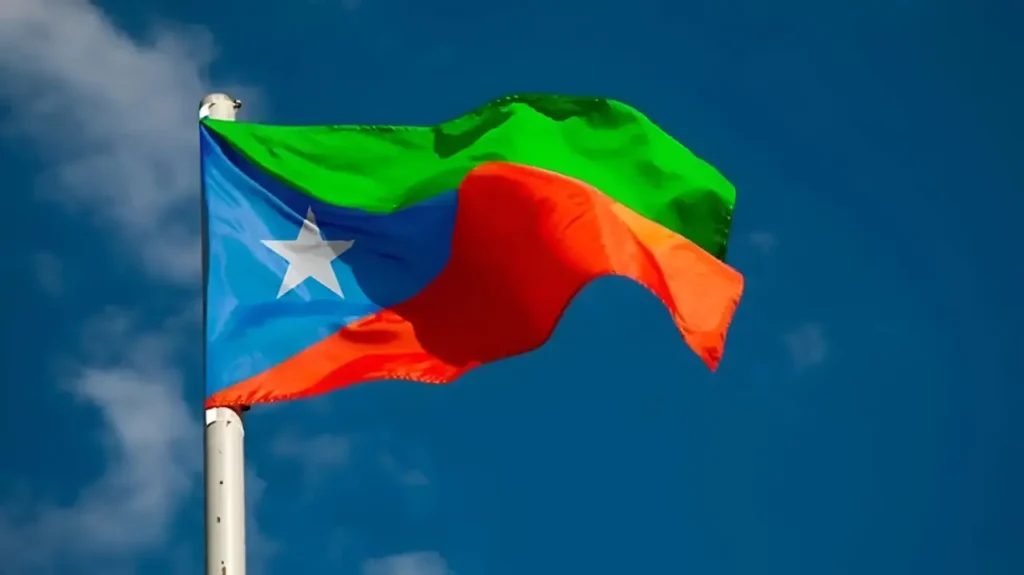As India and Pakistan stepped up military airstrikes on each other following a brutal terror attack at Pahalgam in the Kashmir valley on 22 April 2025, for which an offshoot of Pakistan-based terrorist outfit claimed responsibility, the Baloch people also intensified its movement for an independent Balochistan, a major part of which is under alleged occupation of Islamabad. The abrupt ceasefire between New Delhi and Islamabad on 10 May evening, even though the Pakistani forces continued explosions and dispatching of military drones to the bordering localities, may pause the excitement for the freedom-loving Baloch people to some extent. Nonetheless, New Delhi had to organise a midnight media briefing where it was said that ‘a breach of the understanding arrived at earlier today (Saturday)’ took place.
Not only the indigenous population inside the current Balochistan province in western Pakistan, but also the Balochi diasporas have joined the movement and almost claimed their independence from Pakistan. The Balochi-descendants in India have even urged the United Nations to recognise Balochistan as an independent country. In a letter, addressed to UN secretary-general António Guterres, the Baloch Welfare Association demanded to support the Balochi nation’s legitimate right to self-determination, as enshrined in the UN charter and international law. “We urge the UN to take immediate and serious action on the humanitarian crisis in Balochistan. Recognizing an independent Balochistan becomes an essential initiative to bring a lasting peace in the region, end decades of suffering and support the people whose voices have been silenced for a long period,” said the letter, dispatched from its office in Banswara of Rajasthan in western India.

For over seven decades, the people of Balochistan have been subjected to relentless atrocities by the Pakistani state, including enforced disappearances, military operations, resource exploitation, and systematic cultural suppression, asserted the letter, adding that these actions amount to crimes against humanity and continue to threaten the survival of the Baloch identity. Pointing out that Balochistan remains under occupation and oppression from Islamabad, the association also appealed to Prime Minister Narendra Modi ‘to take a principled and bold step by recognizing Free Balochistan as an independent state’. Such recognition would not only uphold the democratic values that India cherishes but also reaffirm India’s historical and cultural ties with the Baloch people, stated the letter.
Days back, Hyrbyair Marri, president of Free Balochistan Movement, who is currently based in London, reiterated that New Delhi ‘should give Jinnah’s House in Mumbai to Baloch people and term it as ‘Balochistan House’, where Pakistan’s founder Muhammad Ali Jinnah made plans and finally divided India. From the same iconic bungalow (also known as South Court on Mumbai’s Malabar Hill), the Balochs should be allowed to plan for the independence of Balochistan, stated Marri, adding that once Balochistan attains independence Pakistan will simply cease to exist.
In a recent article, published by Balochwarna online news, Marri also criticized the United Nations as being ‘not impartial’, because the intergovernmental institution continues ignoring the issue of Balochistan, which has otherwise been used by Pakistan as a political tool since 1947. Though Pakistan was created in the name of Islam by the Indian Muslims, it did little for Islam, where Pakistani Muslim Punjabi establishment always used Islam for their political benefits. Islamabad’s obsession with unfounded human rights violations in Jammu and Kashmir brought back the focus on atrocities committed by the Pakistani army on the people of Pakistan occupied Kashmir (which they call Azad Kashmir) and Balochistan.
Prominent Balochi writer Mir Yar Baloch also claimed Balochistan’s independence from Pakistan amid the ongoing New Delhi-Islamabad conflict. He wrote on social media that the UN has already been approached ‘to recognise independence of the Democratic Republic of Balochistan’ and send a UN peace keeping mission immediately. Asking the Pakistani occupational forces as well as non-Baloch personnel in any intelligence or civil administration to leave Balochistan, the Balochi intellectual also requested the Indian Union government to permit for opening an embassy in New Delhi.
MB Marri, an active member of Free Balochistan Movement, urged New Delhi not to view the Baloch (an oppressed nation) through the same strategic or cultural lens as for Pakistani nationals. It undermines the history, struggles, and aspirations of the people who have suffered decades of brutal repression under the Pakistani military establishment, stated Marri, adding that the Balochi people should not be recognised merely as an extension of Pakistan, because it simply ignores their right to self-determination, enshrined by the UN principles.
“The Balochs are an ancient people with their own language, culture, traditions, and a long history of resistance against foreign domination. Unlike the Punjabi-dominated Pakistani state, which was artificially constructed through colonial manoeuvring, the Baloch have inhabited their homeland—Balochistan—for thousands of years. Their identity is rooted in their land, and their desire for sovereignty is not a recent phenomenon, but one that has persisted for generations,” said Marri.
However, since the illegal occupation of Balochistan in 1948, Pakistan has subjected the Baloch people to unimaginable suffering. Thousands of Balochi men, women, and children have been abducted, tortured, and killed by Pakistan’s military and intelligence agencies. Journalists, students, and human rights activists are regularly silenced. The Balochs have been denied their rights, their freedom, and their dignity for more than seven decades, and yet Pakistan continues to portray itself as the victim in this geopolitical drama.
India, as the world’s largest democracy, always supports the oppressed peoples—from Tibetans to Srilankan Tamils and now New Delhi should extend that same solidarity to the Balochi people, who are fighting not for extremism or revenge, but for the right to live in dignity, freedom, and peace, argued Marri, adding that India should develop a policy approach that distinctly recognizes the Balochi as a suppressed nation and not a part of the machinery that endangers its security. He also opined that cultural, academic, diplomatic, and humanitarian engagements with the Balochi diasporas and civil society should be encouraged.

